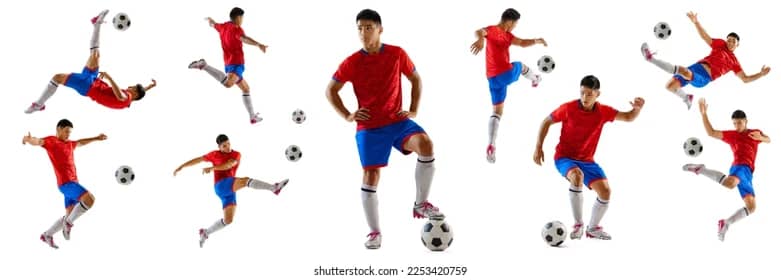The Effect of Caffeine on Making Decisions
According to recent research, although caffeine use may increase football players’ pass accuracy. It has a detrimental impact on their tactical awareness and ability to make decisions.
12 young football players participated in the research and were asked to perform activities that evaluated their ability to make decisions and accuracy when passing with as well as without caffeine. Caffeine improved accuracy on both long and short passes. But it decreased performance on the Loughborough Soccer Passing Test, which evaluates intricate gameplay abilities, and ability to make decisions.

This research emphasizes the intricate interactions between caffeine and sports, pointing out that the side effects of the drug vary according to the task’s difficulty and the player’s particular role in the match.
Important Details:
While caffeine use reduced the ability to make decisions by 7.14%, it increased pass accuracy by up to 13.48%.
The study’s findings varied for lengthy passes and difficult tasks, while they were stable for short passes.
The study emphasizes how crucial it is to take into account caffeine’s varying effects on various football-related metrics.
Staffordshire University, source.
According to recent studies, football players’ ability to make decisions may be negatively impacted by caffeine.
According to a research conducted by Staffordshire University and Shiraz University in Iran, coffee intake before a game might increase football pass accuracy but can also negatively impact more tactical play with a larger number of passes.
Senior Lecturer in Games Technology at Staffordshire University Dr. Pooya Soltani gave the following explanation. “One of the most well-liked nutritional supplements that has been demonstrated to provide advantages during workout, including football, is caffeine. Research has shown that caffeine improves self-reported state of energy and mood along with focus, accuracy, and speed.
But because there is constant disagreement on how coffee affects “higher” cognitive processes like problem-solving and judgment, we chose to look at this.
12 teenage football players, who were ages 16 to 17, participated in a set of exercises designed to investigate the effects of caffeine on the accuracy of passes and making decisions.
In addition to completing five 10- and 30-meter passes, the participants completed the Loughborough Soccer Passing Testing. Which evaluates passing, kicking, control, as well as decision-making abilities.
After that, the examiners used a laptop for the assignment to assess individuals’ ability to make decisions in various gaming situations. They had to choose the optimal course of action from 10 simulated, previously recorded events.
Once after ingesting 3 mg/kg body mass of caffeine and once after ingesting comparable quantities of the control group, the individuals completed the activities.

When the football players consumed coffee instead of a placebo. Their accuracy increased by 1.67% for short passes and 13.48% for long passes. But when individuals drank coffee instead of a placebo. Their decision-making was 7.14% lower and their Loughborough Football Passing Test results were 3.49% worse.
According to Negar Jafari of Shiraz University, efficiency differed when it came to long passes. However practically all participants’ short pass efficiency was constant both before and after consuming coffee. Additionally, after taking caffeine, the majority of subjects performed worse on the Loughborough Football Passing Test as well as in decision-making processes.
“This may imply that minor amounts of coffee taken an hour before performing might have a deleterious effect on more difficult activities requiring more passes.”
Nevertheless, the researchers advise further study into the effects of coffee on players. Ability to make decisions in the game rather than advocating that football players absolutely abstain from it.
“The players in a football game have to process a lot of signals. Such as the positioning of their opponents, team structure, and time constraints. Dr. Soltani said, “Making decisions in passing is especially important, as an executed effective pass may lead to scoring possibilities.”
Our research indicates that coffee consumption may have an impact on this. And coaches may find it helpful to investigate these performance indicators during training. Numerous factors may be at play, including the amount of caffeine consumed in relation to body weight. How often it is consumed, and certain positions of players or gameplay styles.
For a player in the midfield, for instance, a little drop in pass accuracy could be critical, but less so for a keeper


